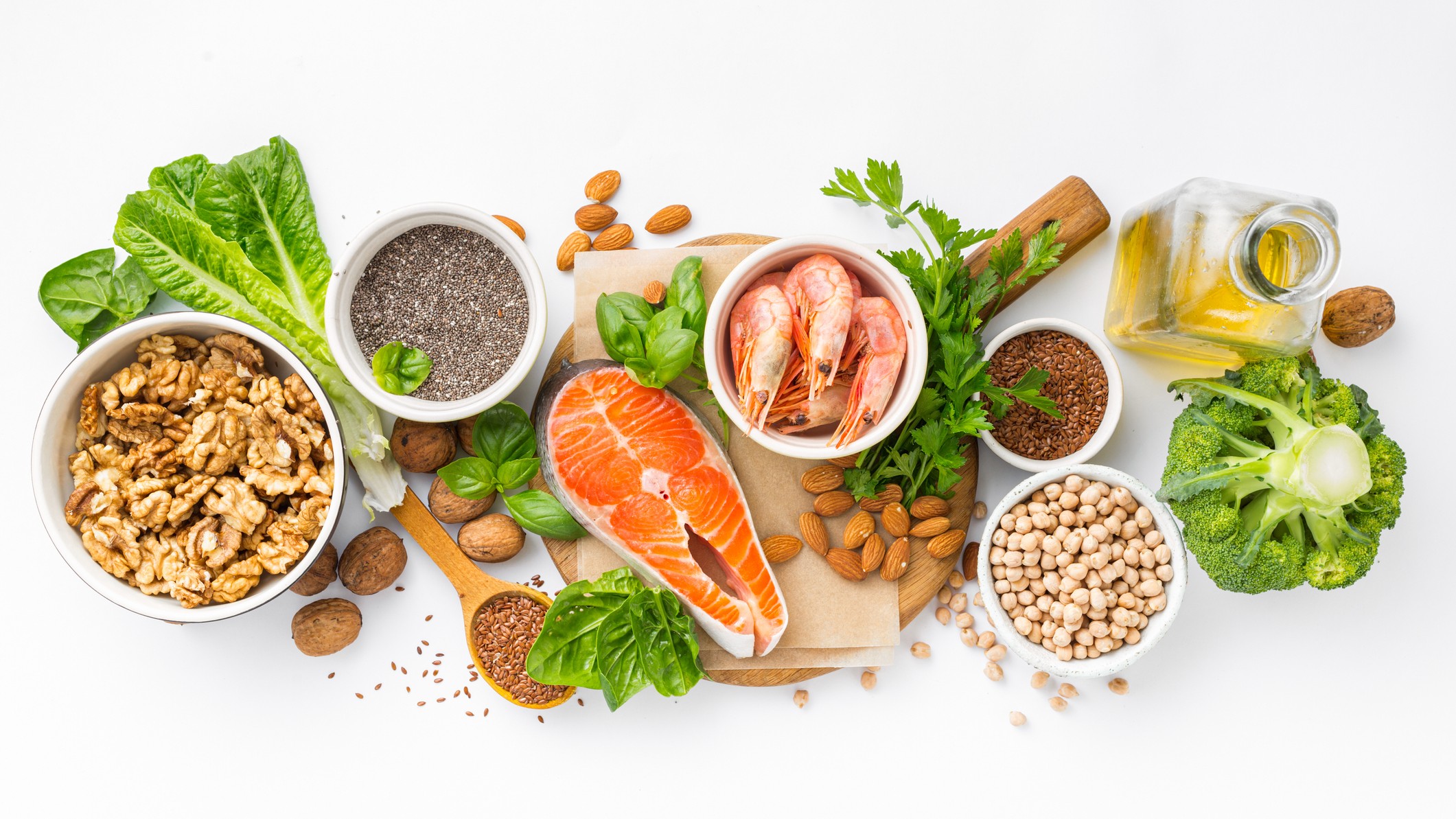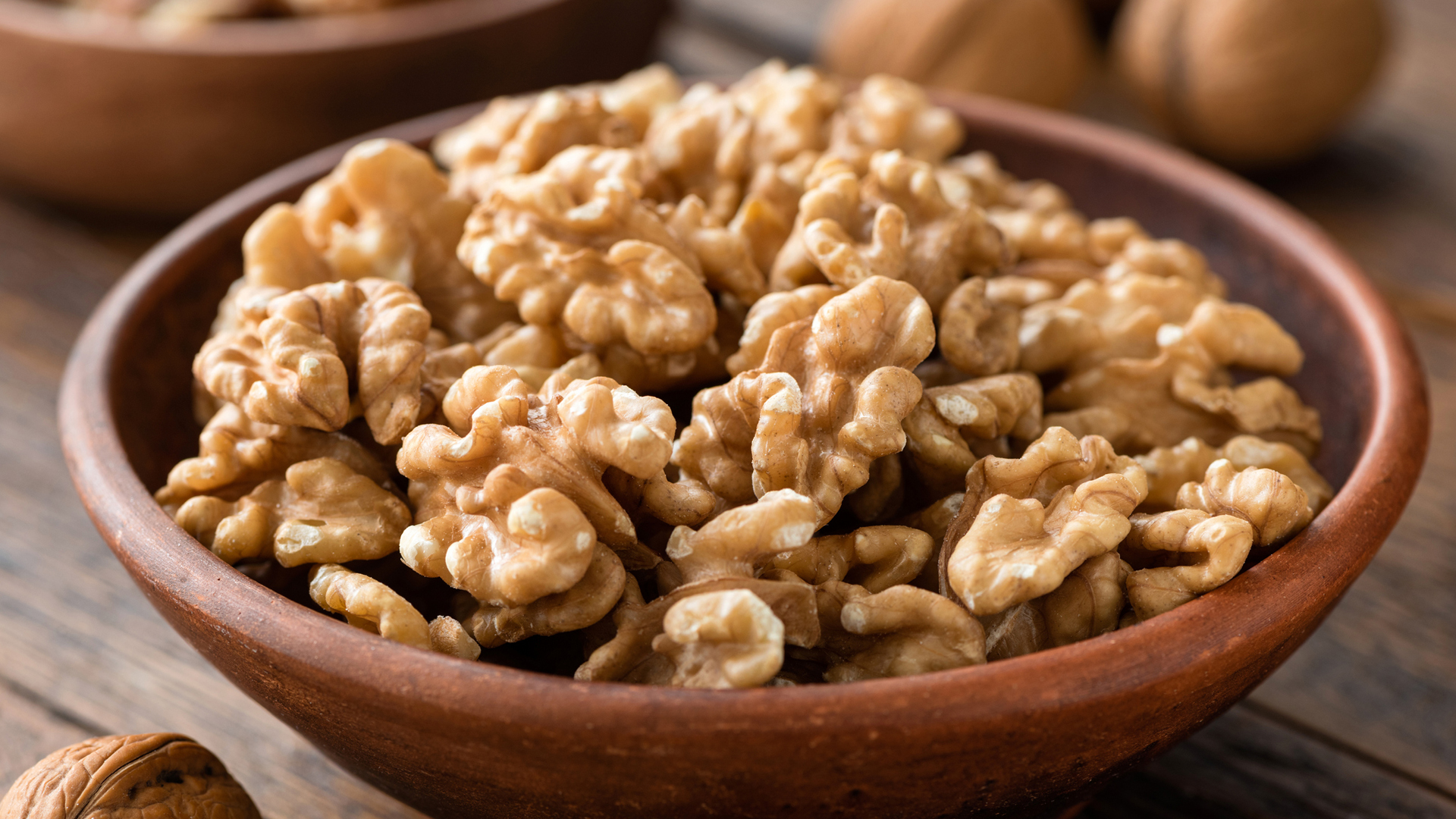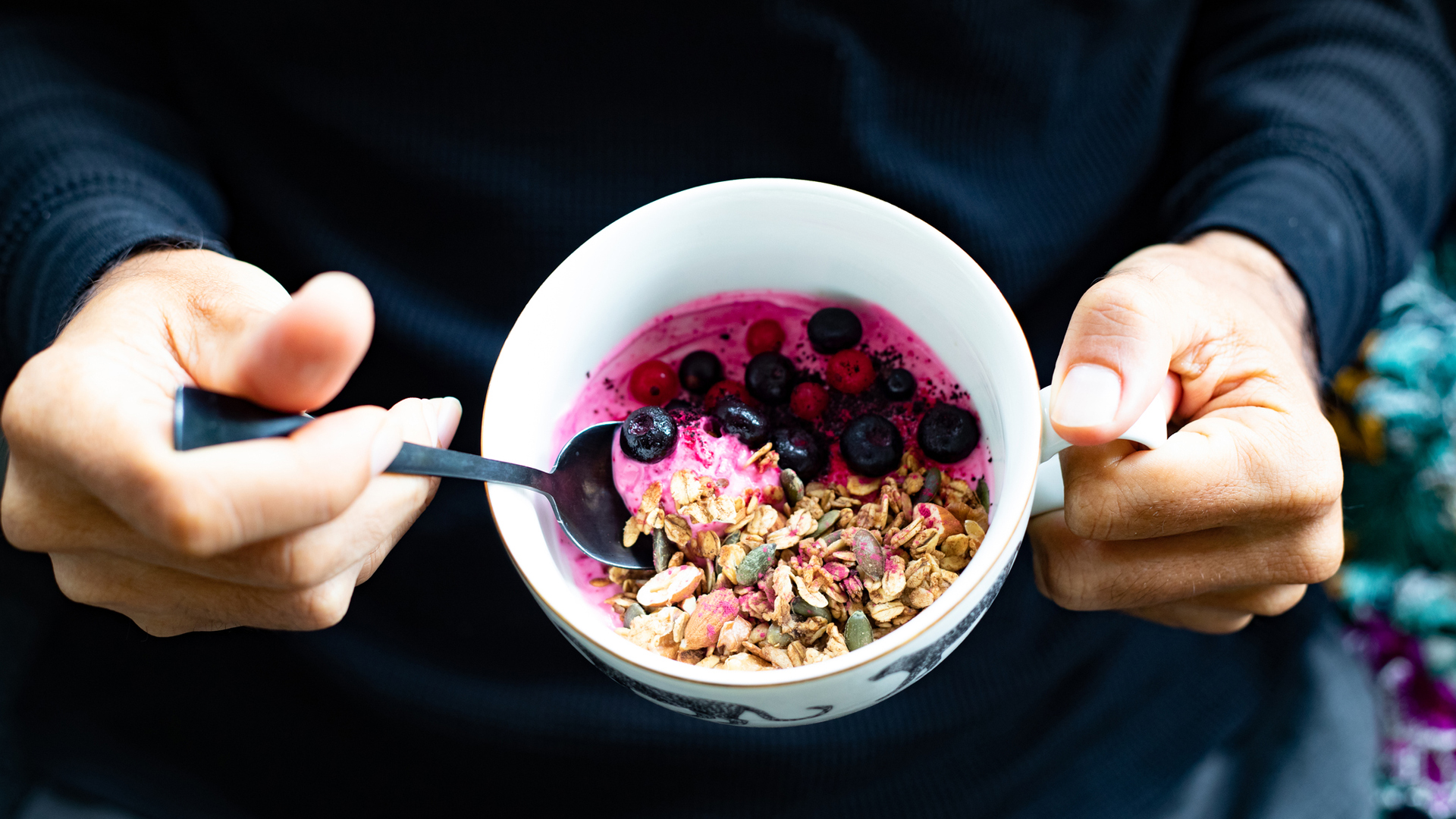
Start your week with achievable workout ideas, health tips and wellbeing advice in your inbox.
You are now subscribed
Your newsletter sign-up was successful
While omega-6 might not share the same good reputation as omega-3, there are lots of healthy omega-6 foods you can eat as part of a balanced diet.
Omega-6 fats support brain function and ensure the normal growth and development of internal organs in a similar way to the omega-3 fats found in the best fish oil supplements.
They also help to stimulate skin and hair growth, maintain bone health, and regulate both blood sugar metabolism and the reproductive system. However, they’ve also been shown to increase inflammation levels if eaten in excess, and contribute to the development of cardiovascular disease, obesity and Alzheimer's.
As is the case with nutrition, it’s all about getting the right balance. A healthy ratio of omega-6 to omega-3 appears to be between 1:1 and 4:1, whereas in a typical American diet it tends to be slanted towards 20:1. This is because omega-6 fats are common in processed foods like cakes, cookies and takeaway pizzas. To maintain the right balance of fatty acids, it’s important to up your omega-3 intake – but don’t be afraid of eating healthy omega-6 foods too, as these are also important.
You may struggle to find a separate omega-6 supplement, but don’t worry. Fish oil supplements generally contain the right amount of omega-6 fatty acids. First and foremost, however, it’s important to focus on diet. Here are 10 healthy omega-6 foods that will help to keep your hair shiny, skin soft and heart strong.
Walnuts
These creamy, slightly bitter nuts grow on walnut trees. With their exceptionally high content of dietary fiber, protein and micronutrients, walnuts are a real nutritional powerhouse. As well as being high in omega-6, they are a great source of many essential minerals (such as manganese, copper, phosphorus, and magnesium), vitamins B6 and E and polyphenols with health-promoting properties. A review published in Food Science and Nutrition linked walnut consumption with better cardiovascular, metabolic and gastrointestinal health.
Enjoy walnuts on their own or sprinkled over breakfast cereals, salads and dairy products. You can also mix them into a bread mix or use them in place of the crust on your favorite meat dishes.
Start your week with achievable workout ideas, health tips and wellbeing advice in your inbox.

Sunflower seeds
Sunflower seeds are the edible parts of the sunflower plant. They can either be consumed raw or used to produce cooking oil. Sunflower seeds are a great source of minerals (including iron, selenium, magnesium and calcium), vitamins B6 and E and bioactive compounds with antioxidant and anti-inflammatory properties.
Sunflower seeds boast a distinct nutty flavor and crunchy texture, which makes them a great addition to many sweet foods and snacks, including trail mixes, granola bars and pastries.
Pumpkin seeds
Although they may not look particularly appetizing, pumpkin seeds hide a wealth of healthy nutrients. Pumpkin seeds are particularly rich in protein and fiber, as well as many essential minerals (such as iron, zinc, calcium, magnesium, manganese, copper and sodium), vitamins B2 and K, and other phytonutrients.
Multiple studies have demonstrated that regular pumpkin seed consumption can have a beneficial effect on a wide range of health factors, including blood glucose, cholesterol levels, immune response and inflammation.
Pumpkin seeds are perfect for snacking on-the-go or sprinkling over meals. They work particularly well with fresh salads, vegetable soups and stir fries.

Hemp seeds
Hemp seeds are the edible parts of the Cannabis plant and are considered to be one of the most nutritious seeds available. Hemp seeds provide a great deal of healthy fats and protein, as well as many essential minerals, vitamins A and E, and other compounds with anti-inflammatory properties. Multiple studies have shown that hemp seeds and hemp products could be effectively used for the prevention and treatment of many chronic neurodegenerative and cardiovascular diseases.
Hemp seeds are quite a versatile cooking ingredient due to their mild, nutty flavor and soft texture. They can be sprinkled over many different meals, including breakfast cereals, fruit smoothies, salads, and vegetable soups.
Pine nuts
Pine nuts are tiny, elongated seeds that grow on pine trees. They’re known for being more expensive than other nuts as they take much longer to mature and they’re fairly difficult to harvest. But they’re worth the wait. Pine nuts contain a significant amount of protein, fiber and healthy fats, as well as many important vitamins and minerals. Pine nuts are a good source of pinolenic acid, which research in the Journal of Functional Foods found to have a positive effect on appetite control, weight management, insulin sensitivity and metabolic health.
Raw pine nuts have a soft texture and a sweet, buttery flavor that goes well with many different dishes. Many people like snacking on pine nuts when they’re lightly toasted as the temperature brings out more crunch and flavor. Still, the most popular uses of this nut are either in pesto or as a salad topper.
Avocado oil
This creamy fruit from South America is known for its high unsaturated fat content and multiple health benefits. One study published in Antioxidants found that avocados can contribute to the prevention and treatment of cancer, inflammation, bacterial infections, type 2 diabetes and cardiovascular disease.
Avocados can also be consumed in the form of an oil. Virgin avocado oil is a rich source of healthy fatty acids. It’s also very resilient to high temperatures, which makes it an ideal cooking ingredient for anything that involves prolonged baking, roasting or frying. It also works well with salads and dips.
Tofu
Tofu, or bean curd as it’s also known, is made by coagulating soy milk and pressing the soy curds into blocks. It is widely praised for its high quality protein that makes it easy for vegetarians and vegans to get all the essential amino acids they need. Tofu also provides a fair amount of key micronutrients, including copper, iron, calcium, and manganese.
Tofu and soy-based products are widely used as a meat substitute. However, you can also whip a pack of tofu into an egg-like scramble or turn it into a sweet dessert. Options are endless.

Eggs
Eggs are a great breakfast food. They’re quick and easy to make and they contain a significant portion of quality protein and healthy fatty acids to start your day right. Eggs are also packed with a range of important nutrients, including vitamins B12, A and D, and bioactive compounds.
Wondering what’s the healthiest way to cook your eggs? They can be scrambled, fried, or boiled. Eggs can also be added to breakfast baps, wraps, sandwiches, soups and salads.
Grapeseed oil
Grapeseed oil, as the name indicates, is a type of vegetable oil derived from seeds of grapes. Although not nearly as popular as sunflower oil, it makes a great addition to your pantry. Grapeseed oil is a rich source of vitamin E and many compounds with anti-inflammatory, cardioprotective and antimicrobial properties.
Grapeseed oil has a mild flavor and high smoke point, making it a great cooking ingredient for frying, baking or grilling many different dishes.
Almonds
First grown in the Middle East, not only are almonds tasty, they also boast a range of health benefits, particularly for metabolic and cardiovascular health. Almonds provide a great source of protein and fiber, as well as vitamin E, manganese and magnesium.
Almonds are great as a quick on-the-go snack or you can try roasting them and blending them in a food processor to make a batch of deliciously creamy almond butter.

Anna Gora is a Health Writer for Future Plc, working across Coach, Fit&Well, LiveScience, T3, TechRadar and Tom's Guide. She is a certified personal trainer, nutritionist and health coach with nearly 10 years of professional experience. Anna holds a BSc degree in Nutrition from the Warsaw University of Life Sciences, a Master’s degree in Nutrition, Physical Activity & Public Health from the University of Bristol, as well as various health coaching certificates. She is passionate about empowering people to live a healthy lifestyle and promoting the benefits of a plant-based diet.
